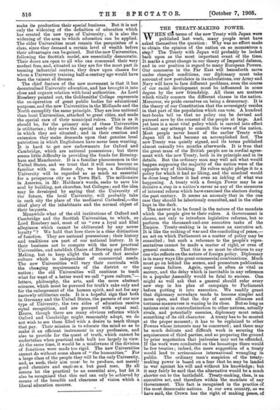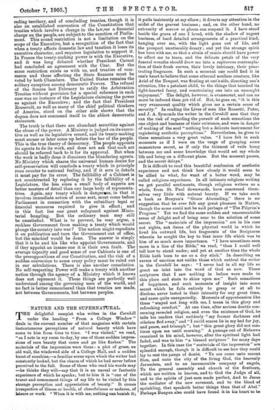ceding territory, and of concluding treaties, though it is also
an established convention of the Constitution that treaties which involve a change in the law,eor a financial charge on the people, are subject to the sanction of Parlia- ment. This sound restriction is not a limitation on the scope of the Executive, but a recognition of the fact that when a treaty affects domestic law and taxation it loses its executive character, and requires legislation to support it. In France the treaty-making power is with the Executive, and, it was long debated whether President Carnot had concluded an agreement with the Czar. But the same restriction exists as with us, and treaties of com- merce and those affecting the State finances must be voted by both Chambers. The United States remains the solitary exception among democratic Powers. The refusal of the Senate last February to ratify. the Arbitration Treaties without provision for a special reference in each case was an instance of the Legislature claiming the power as against the Executive; and the fact that President Roosevelt, as well as many of the chief political thinkers of America, stood on the other side shows that the dogma does not commend itself to the ablest democratic statesmen.



























































 Previous page
Previous page